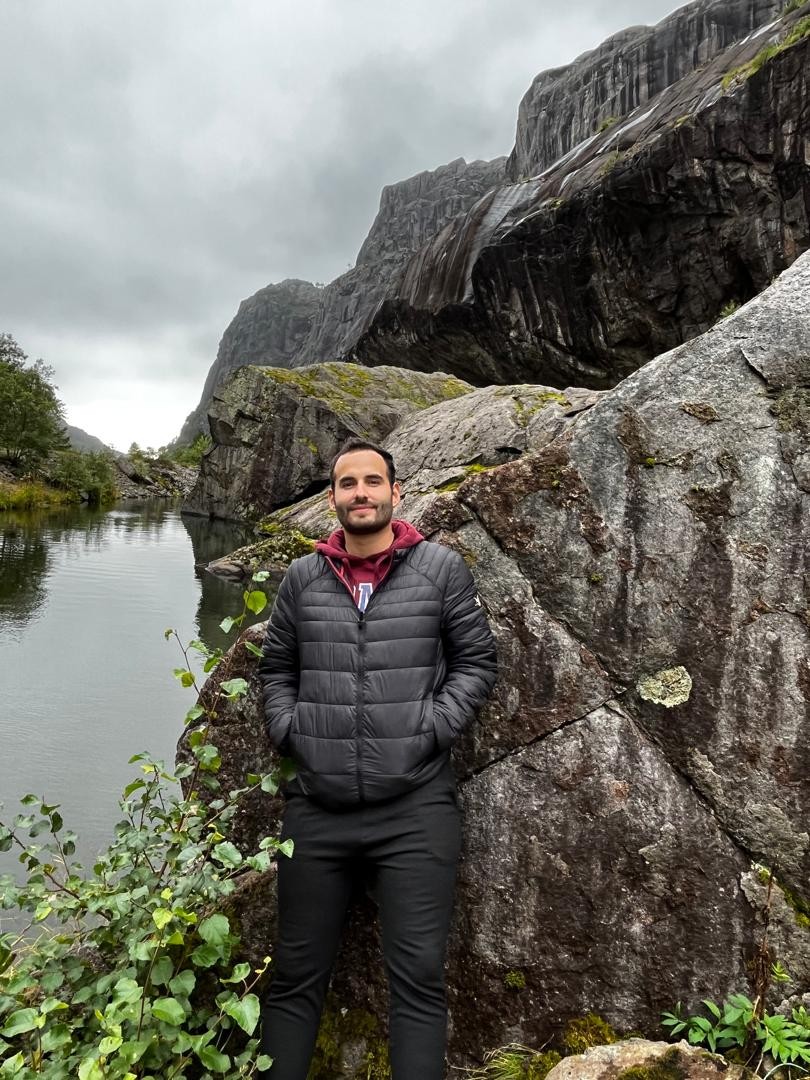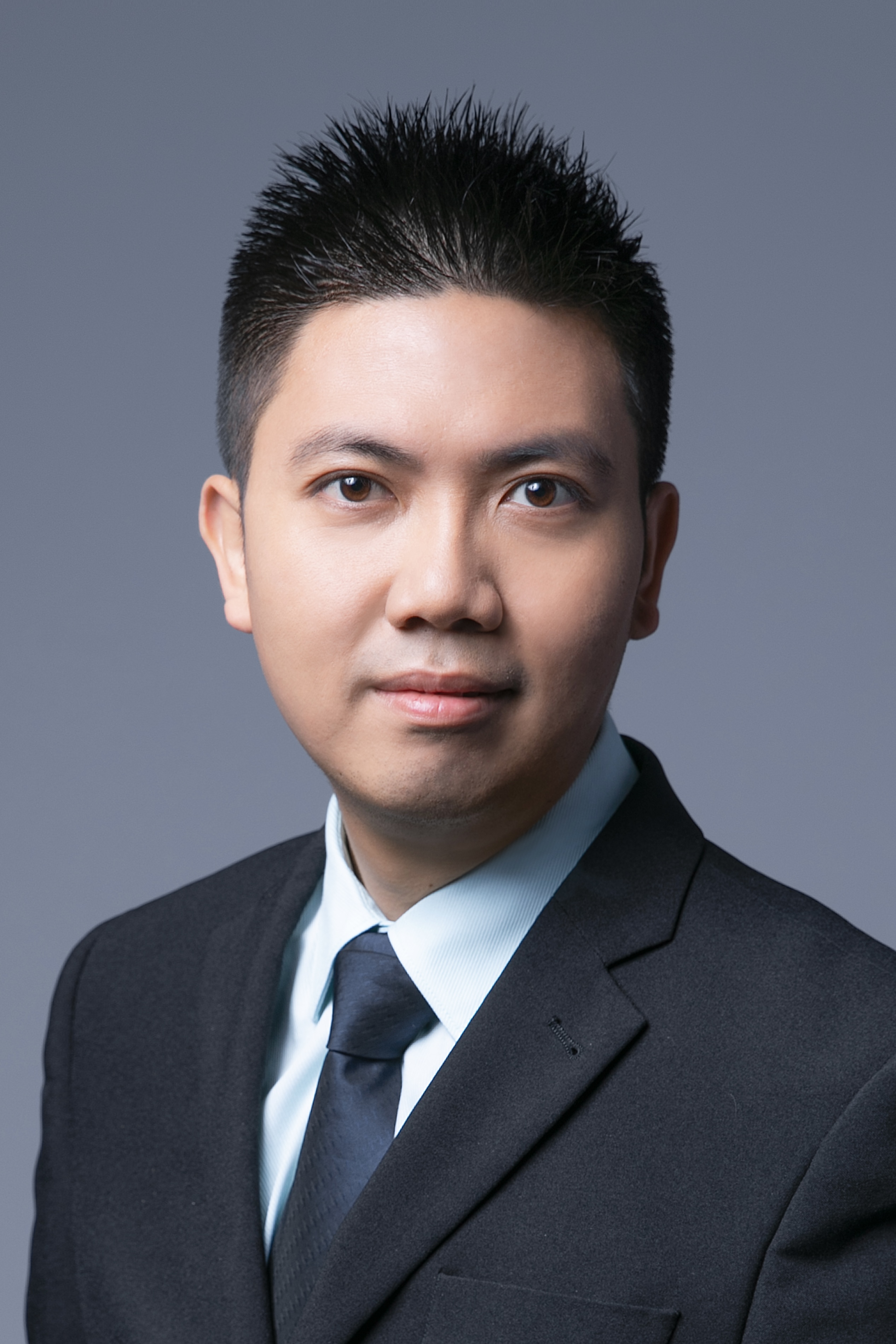The China-UK Low Carbon College (LCC) of Shanghai Jiao Tong University (SJTU) is home to the pioneers of sustainable economy in the future.

Among them is Sebastian Albarracin Quintero from Colombia, who has been awarded with the Chinese Scholarship Council grant. With a robust professional background forged in Petroleum Engineering, he came to the Lin-gang campus in September 2025 to pursue his Master's Degree in Energy and Power Engineering with a single, critical mission: leveraging his industry expertise to master the technology of Carbon Capture, Utilization, and Storage (CCUS) and accelerate global decarbonization.

The culmination of a rigorous, eight-month selection process. Sebastian (in the back row) with the exclusive cohort of students awarded the Chinese Scholarship Council (CSC) grant
Intersection of Oil and Decarbonization
Sebastian’s decision to pivot was a deeply logical professional evolution built on a strong foundation in science and industry.
As a graduate of Petroleum Engineering from the Fundación Universidad de América in Bogotá, post-graduation he sought to strengthen his expertise through further certification, thus completed two post-graduate diploma programs: one in Corporate Finance and another in Management and Planning of Renewable Energies.

Sebastian graduating from his bachelor’s engineering degree
His career after the bachelor’s degree included working as a Technical Sales Representative at Stratum Reservoir for several years, which had equipped him with direct insight into industry operations. This work experience has become his primary asset, particularly for CCUS.

Sebastian during his tenure as a Technical Sales Representative at Stratum Reservoir, a period of work experience that is critical for expanding his technical consulting skills and industry knowledge
Sebastian stresses the value of his transferable skills: "The safe, permanent sequestration of CO2 relies entirely on understanding how to select, characterize, and manage deep subsurface reservoirs", which is a knowledge base rooted in his petroleum geology and fluid flow expertise. This real-world perspective allows him to focus on solutions that are not only theoretically sound but also "economically viable and industrially deployable in the future".
From Optimized Flaring to Global Energy Carriers

Strategic engagement on Carbon Capture, Utilization, and Storage (CCUS). Stratum Reservoir’s team, including Sebastian (left), after a meeting with Colombia's Ministry of Energy (MinEnergía) to discuss early CCUS implementation.
Sebastian’s shift into low-carbon systems was cemented by his prior research achievements. His work on process optimization of flaring gas culminated in his first scientific paper in 2022, published in the Q1-ranked journal Energies. This project transformed a typically wasted gas resource, which is commonly incinerated in the petroleum industry, and repurposed it for onsite energy production, a circular approach that "maximized resource utilization, offering a sustainable alternative and a new fuel source." This experience cemented his drive to develop technologies that "generate renewable and sustainable energy solutions to improve people's quality of life."
Now at LCC, his Master's research concentrates on the development of New Energy Systems, specifically involving three critical, cutting-edge areas: CCU, Ammonia, and Hydrogen. He believes this research is of great importance because it offers "tangible, large-scale solutions to the problem of industrial decarbonization" for "hard-to-abate sectors".
He is focusing on optimizing the production, transport, and utilization of these low-carbon energy carriers. He finds Ammonia particularly fascinating, as it is gaining recognition as a viable fuel source, especially for maritime transport, due to the feature that its storage are more convenient compared to pure Hydrogen. His ultimate goal is to transform theoretical concepts into "deployable technologies that will underpin a sustainable, resilient, and fully decarbonized global economy", he notes.
His specialized work is supervised by Associate Professor Chong Cheng Tung, a "leading figure in our field" and a consistently recognized Top 2% researcher in the world by Stanford University since 2020. Dr. Chong's supervision style is "highly collaborative and structured", focusing on continuous group meetings. Sebastian notes that his supervisor "strongly encouraged the simulation of new energy systems," a core capability that helps to focus his research efforts.
A Global Platform for National Impact
Sebastian’s motivation is intensely focused on the national impact in Colombia as his home country.
“Colombia possesses an impressive array of renewable resources that remain largely underexploited due to a lack of specialized knowledge, sustainable implementation resources, and advanced technology. The fact that a segment of our population still lacks access to a reliable electrical grid, despite our nation's immense capacity for sustainable generation, is a powerful focal point of my motivation.”
He believes that the "critical role of energy forces us to rethink current generation models".
The lack of high-level graduate programs specializing in energy transition back home "solidified my decision to seek specialization abroad". By acquiring advanced knowledge at LCC, he aims to "enable the sustainable exploitation of Colombia’s resources, ensuring that a greater number of people can access clean, sustainable energy and, consequently, experience an improved quality of life". His choice of SJTU was strategic, recognizing China’s status as a global technological powerhouse.
Life and Learning in his "Second Home"
Sebastian’s prior experience as a language student in Shanghai is proved invaluable in shaping his perception of China as a place of "innovation and profound cultural depth". He is constantly impressed by the technological advancement, "the ubiquitous use of mobile payments for every transaction and movement within the city is simply incredible". He feels completely at home, stating that "I genuinely regard Shanghai as my second home".

Exploring history and culture. Sebastian and his partner in Zhujiajiao (朱家角), an ancient water town near Shanghai, embodying the cultural exploration that defines their weekends
On the weekends and holidays, you can find him travelling around Shanghai and nearby cities. Some weekends were spent with an external soccer team that plays a match every Sunday.

Full immersion into local life. Sebastian experienced the historic canals of Zhujiajiao from a local perspective, highlighting the genuine cultural exchange found in the region
His typical day at campus involves utilizing free mornings to complete his daily exercise routine at the gym, followed by the time at his favorite spot: the library, where he finds the "ideal environment—it’s quiet, comfortable, and provides ample charging stations for laptops."You can find him savouring healthy meals in the canteen, or exercising in the gym.

Seamless adaptation to campus life!
Recently, a little get-together last week has left a lasting impression on him, during a dinner with his study group, a mix of international and Chinese students at a Thai restaurant after a CCUS class. "The photo perfectly encapsulates what my life at LCC is about: an opportunity to continue learning about Chinese culture, practice my Mandarin, and, most importantly, establish strong bonds as an international study group," he recalls.
Meet the Supervisor

Dr. Cheng Tung Chong is an associate professor at the China-UK Low Carbon College, Shanghai Jiao Tong University. He holds a PhD in Engineering from the University of Cambridge. His research focuses on the production and application of carbon-neutral fuels, thermochemical conversion, carbon capture and renewable energy systems. Dr. Chong has been awarded the National High-Level Talent Program (Youth) research scheme, Royal Society-Newton Advanced Fellowship, PYRO ASIA Young Researcher Award and ASEAN Science Diplomat Award. He has authored more than 200 articles and 3 research books. He has consistently been ranked among the Top 2% researchers in the Stanford University’s Scientist List since 2020.
LCC Delegation Visits the UK and France
2025-12-16